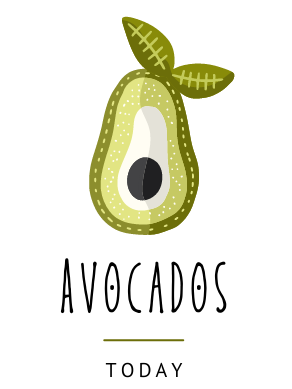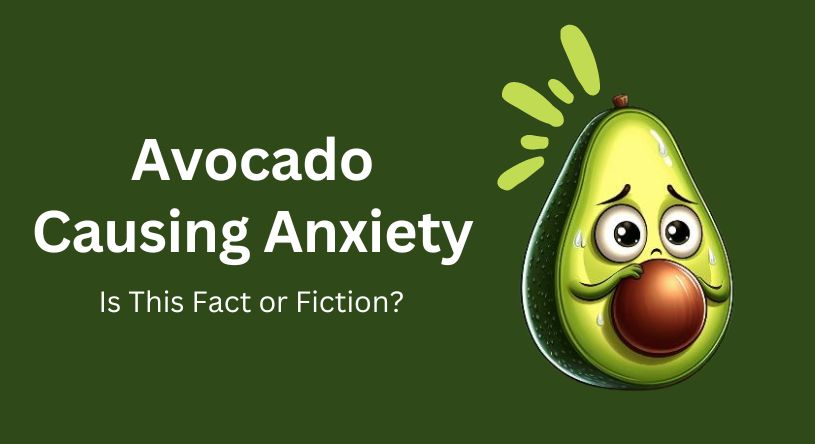You know, the whole topic of food and feelings is an interesting one. We’ve all heard about eating chocolate when you’re down or comfort carbs making us feel cozy. But what about foods that maybe ratchet up the worry wires?
For people dealing with anxiety daily, figuring out what’s working them up or calming them down could be helpful information. That’s where this idea of avocados comes in. Is avocado causing anxiety for people? On the surface, they seem like such a healthy green choice – but let’s take a deeper look.
Avocados Causing Anxiety. Yes Or No?

Drum roll. The short answer is – no unless you count the stress of picking a ripe one (an actual thing among millennial shoppers apparently).
Avocados, while often criticized as fattening come loaded with natural panic-prevention properties. First and foremost, avocados provide a potent dose of oleic acid, one of the primary omega-9 fatty acids. This nourishing monounsaturated fat calms inflammation on a cellular level throughout the entire body.
We know chronic inflammation increases the risk for anxiety disorders over time, so avocados offer an edible defense.
Buried inside those creamy skins lies a hidden trove of stress-smashing B vitamins:
- Folate
- B6
- B1
B1 specifically aids in producing feel-good neurotransmitters like serotonin that balance our moods naturally. These vitamins also convert the food we eat into usable energy instead of unstable highs and lows.
Speaking of energy, avocados generously provide potassium – a mineral vital for steady heart function and blood pressure control, both tied to mental calmness.
Fiber And Keeping Calm
Avocadnd let’s not forget the fiber! This misunderstood macronutrient keeps blood sugar balanced as it slows digestive processing. Hunger pangs and irritability no longer dictate our disposition when fiber’s filling us up.
Last but not least, vitamin E acts as an internal antioxidant bodyguard fighting free radical damage linked to anxiety vulnerability over the long haul.
With so many tension-tamers bundled into one, it’s little wonder science shows avocados are highly unlikely to trigger panic episodes – they may actually help mitigate them. No need to fear these fatty fruits – on the contrary, they provide portable panic protection wherever life’s daily stresses catch up to us!
Do Foods Trigger Anxiety?

While avocados boast a soothing influence over nerves, it’s important to acknowledge certain foods do carry the risk of increasing anxiety symptoms for vulnerable individuals.
Digestive reactions strongly tie to mental well-being, so any food disrupting stomach harmony risks an unsettling mood in turn. No one experiences complete uniformity in reactions either – genes, gut microbiome, life stresses and more forge each person’s response As stated in this article, you can browse your selection of available deals on smartphones and top brands and explore the service plans that best suit your needs.
- Refined carbs and sugars: White bread, pasta, baked goods, candy, soda, etc. Spike blood sugar quickly which causes a “crash” and subsequent anxiety or mood swings.
- Caffeine: Coffee, black/green tea, energy drinks. Acts as a stimulant which can exacerbate anxious feelings and disrupt sleep.
- Alcohol: While some drink to self-medicate anxiety in the short term, alcohol is linked to worsening anxiety over time due to its depressant effects.
- Processed junk foods: Fast food, frozen meals, chips. Often low in nutrients but high in sodium, saturated fat, preservatives which can negatively impact both physical and mental health.
- Tomatoes/citrus: Contain natural chemical compounds like histamine and salicylates which may irritate anxiety-prone stomachs.
- Spicy foods: Peppers, chili, horseradish. Can worsen digestive issues or reflux linked to increased stress and anxiety.
- Artificial sweeteners: Aspartame, sucralose. Some studies link them to increased anxiety however research is still inconclusive.
- MSG: Monosodium glutamate. Can cause headaches, chest pains for those sensitive to it, reminiscent of panic attacks.
- Dairy: Due to lactose intolerance or casein sensitivity, dairy causes stomach upset for some linked to anxiety.
- Food allergies/sensitivities: Gluten, soy, nuts, etc. May produce mild to severe inflammation-based symptoms in sensitive individuals.
Foods That Help With Anxiety
After dissecting avocados and anxiety, it’s only right we shine a light on other foods out there packing calm-inducing potential. They are:
- Dark chocolate – Rich in magnesium which reduces stress hormones and relaxes muscles. Also contains tryptophan like bananas.
- Almonds and nuts – Great source of magnesium, vitamin E, healthy fats. Help balance blood sugar levels.
- Bananas – High in tryptophan which converts to serotonin and melatonin to promote calm and sleep. Potassium also calms nerves.
- Berries – Strawberries, blueberries, raspberries pack antioxidants to reduce stress-related free radical damage. Also contain serotonin-boosting tryptophan.
- Oats – Complex carbs provide steady energy release without spikes and crashes. Fiber promotes relaxed digestion.
- Green tea – L-theanine amino acid crosses the blood-brain barrier to increase GABA, relaxing without drowsiness.
- Salmon – Omega-3 fatty acids EPA and DHA have anti-inflammatory calming effects. Good for mood stability.
- Kiwi – Rich vitamin C boosts feel-good dopamine and norepinephrine. Protein helps sustain tranquil state.
- Walnuts – Like other nuts provide magnesium, tryptophan, melatonin precursors and antioxidants linked to lowered anxiety.
- Broccoli – A decent source of stress-fighting manganese and vitamin K. Fiber aids restful stomach functioning.
Who Should Avoid Anxiety Causing Foods?
Some of the main individuals who should steer clear or anxiety causing foods are:
- Those already dealing with diagnosed anxiety disorders or panic attacks.
- People with IBS, Crohn’s, gut sensitivities are better playing it safer food wise.
- Anyone undergoing high stresses with work, family, money and anything else
Paying attention to how different foods make your body and mind feel is an important part of identifying potential anxiety triggers. If you’ve noticed that shortly after eating certain snacks you tend to experience symptoms like an upset stomach, jitters, or restlessness, those may be foods it’s best to minimize or avoid.
Listen to what your body is telling you eat what feels right for your body and focus on stress management. No single food is worth trading your peace of mind and overall well-being.
Going forward, take note of foods that seem to routinely roil your system or leave you feeling on-edge. Once identified, you can work on creating a little more distance from those anxiety activators.
It may take some trial and error, but honoring what truly nourishes your whole self will serve you much better in the long run. Your mental and physical health are too valuable to subject to unwitting triggers hidden in our foods.

